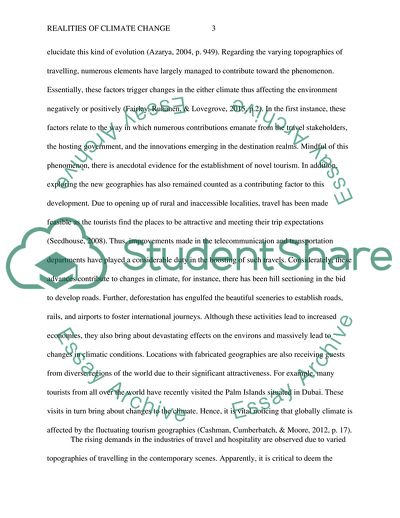Cite this document
(Realities of Climate Change Coursework Example | Topics and Well Written Essays - 2000 words, n.d.)
Realities of Climate Change Coursework Example | Topics and Well Written Essays - 2000 words. https://studentshare.org/tourism/1876166-discuss-the-realities-of-climate-change-to-what-extent-does-travel-tourism-and-hospitality-contribute-to-climate-change
Realities of Climate Change Coursework Example | Topics and Well Written Essays - 2000 words. https://studentshare.org/tourism/1876166-discuss-the-realities-of-climate-change-to-what-extent-does-travel-tourism-and-hospitality-contribute-to-climate-change
(Realities of Climate Change Coursework Example | Topics and Well Written Essays - 2000 Words)
Realities of Climate Change Coursework Example | Topics and Well Written Essays - 2000 Words. https://studentshare.org/tourism/1876166-discuss-the-realities-of-climate-change-to-what-extent-does-travel-tourism-and-hospitality-contribute-to-climate-change.
Realities of Climate Change Coursework Example | Topics and Well Written Essays - 2000 Words. https://studentshare.org/tourism/1876166-discuss-the-realities-of-climate-change-to-what-extent-does-travel-tourism-and-hospitality-contribute-to-climate-change.
“Realities of Climate Change Coursework Example | Topics and Well Written Essays - 2000 Words”. https://studentshare.org/tourism/1876166-discuss-the-realities-of-climate-change-to-what-extent-does-travel-tourism-and-hospitality-contribute-to-climate-change.


